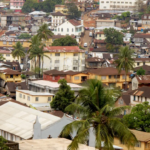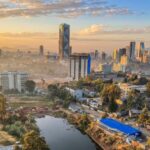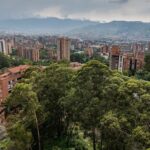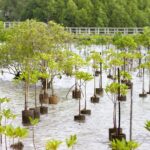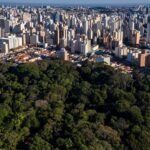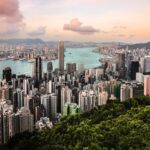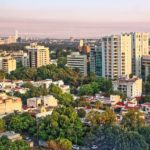Recent Posts by John-Rob
“Climate change is affecting cities all around the world, and Freetown is no exception.” That’s what Eugenia Kargbo, Freetown’s Chief Heat Officer, told UrbanShift during the City Academy hosted in Kigali last year. Through her role—the first of its kind in ...

Climate change is impacting cities and their residents in many profound ways, from poor air quality to flooding to biodiversity loss and extreme heat. Now, with the help of a new tool, select cities can access localized, integrated data to ...

There is no question that for the world to successfully slow and mitigate the effects of climate change, cities will need to transform. Currently, urban areas consume 78% of the world’s energy supply and produce over 60% of global greenhouse gas emissions. By ...

Over the past two decades, Rwanda – the land of a thousand hills – has made remarkable strides: poverty has significantly declined and quality of life has improved. The service, industrial and agricultural sectors have flourished. Even in the aftermath ...

A New Yorker may not think about the forested Catskills Mountain Range upstate as she pours a glass of water. Londoners probably don’t consider the Amazon rainforest as they watch the rain falling on city parks. And folks in Addis ...

Cities and communities around the world are stepping up to cut greenhouse gas (GHG) emissions and prevent dangerous climate change impacts. Their strategies typically focus on reducing emissions from sectors such as transportation, energy, housing and waste. But there’s one sector many communities ...

Responsible for more than 70% of the world’s greenhouse gas (GHG) emissions, action by cities is clearly crucial to limiting global warming to 1.5 degrees Celsius. An important part of this effort is developing local GHG inventories and climate action ...

The new Intergovernmental Panel on Climate Change report highlights the enormous potential of nature to reduce the risks of climate change and build resilience. Political momentum is building for this approach. For example, 137 countries committed in 2021 to collectively end forest loss and land ...

The world’s forests face a dire threat. Each year, 6 to 9 million hectares (15 to 22 million acres, an area roughly the size of Denmark) of forests are permanently cleared and many millions more are degraded. But many decisions affecting forests ...

Water for human consumption is increasingly inaccessible, due to poor management, degradation of water sources, the effects of climate change and more. Marginalized groups — such as minorities, rural communities and women — are disproportionately affected by water security issues, and women often play a key ...

As coronavirus restrictions ease around the world, many consider a walk around their neighborhood for some fresh air to be a welcome break from confinement. However, socioeconomic status could greatly affect the landscapes people find on these strolls, particularly in how much ...

Water is essential to human health and well-being. In cities, leaders strive to provide secure access to clean, safe and affordable water. In rural areas, farmers hope for adequate rain and healthy rivers to produce healthy crops. The coronavirus pandemic ...

Most people don’t associate cities with trees, but urban areas are actually dependent on healthy forests. Trees within cities reduce heat, provide spaces for recreation and socialization, and increase property values. Nearby trees in the watersheds around cities filter drinking water and ...











